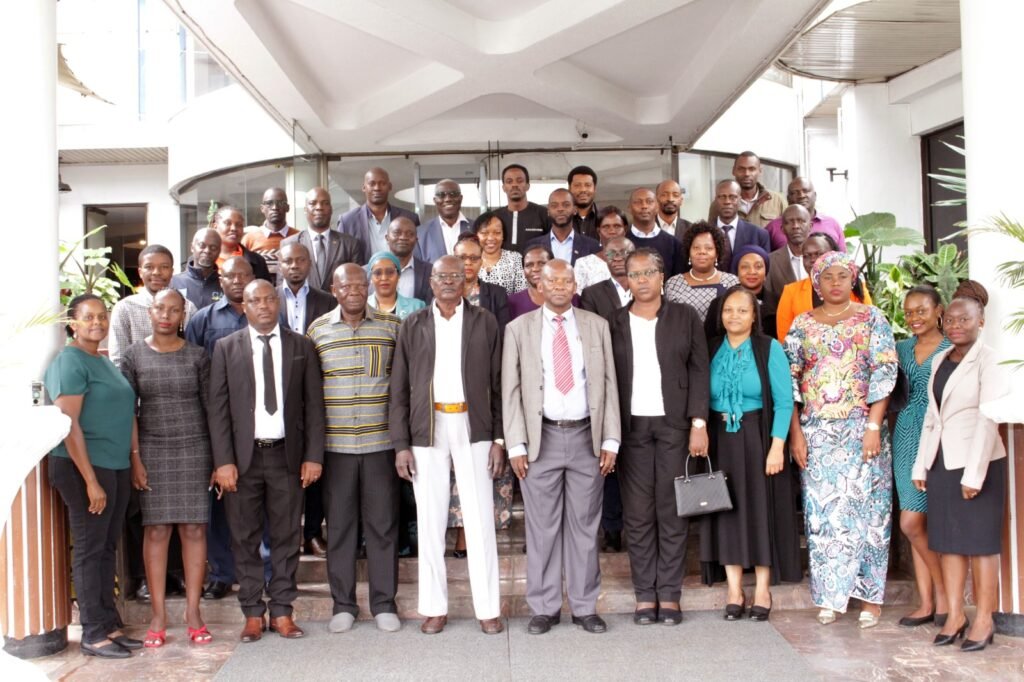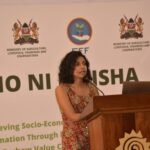By Murimi Gitari, November 17, 2023, The East African Community member states have come together to develop ways of controlling and preventing aflatoxins in the region that will see the disputes and trade losses related to aflatoxins come to an end.
Experts from Kenya, Uganda, Tanzania, Rwanda, Burundi, South Africa, South Sudan and the Democratic Republic of Congo (DRC) met in Nairobi this week for the second Regional Stakeholder Strategic Engagement Workshop on Aflatoxins Prevention and Control organized by the East African Community Secretariat where they are engaging on ways of curbing toxins in grains and cereals in the region.
The EAC is coordinating harmonization of aflatoxin management in the region including mitigating the effects of aflatoxin along the food and feed value chains through policy recommendations, mainstreaming aflatoxin prevention and control priorities into national budgets and investment plans among other measures.
For the past few years, individual member states have experienced inter-trade barriers due to the high levels of afatoxins found mostly in maize grains.
The experts, having met in Kampala early this month have proposed a number of solutions in the prevention and control of aflatoxins and if adopted unanimously will foster a uniformed and quick testing methods.
Speaking while opening the workshop on Thursday, Dr Marie Chantel of Burundi Agricultural Research Institute and who also chairs the workshop, noted that individual countries have set standards that affect inter-trade between member states saying that the synergy of the stakeholders attending the workshop is to help achieve the workshop’s objectives geared towards having common prevention and control methods of aflatoxins in the EAC region.
The first engagement workshop aimed at assessing the progress made by the partner states in implementation of the EAC regional strategy and action plan on aflatoxin prevention and control, informing relevant actors in the region on impact of aflatoxins, what has been achieved so far and elicit views and recommendations on what can further be done, by building on success stories.
The delegates who attended the workshop in Uganda also proposed regional and member state interventions for aflatoxin control based on feedback from partner states while also taking into account on how to foster stronger participation by private sector and health sectors in aflatoxin mitigation in the EAC region.
“We have different levels and different priorities in each member states in regards to aflatoxins prevention and control but nevertheless, whatever solutions we come up with and talk about, will have a place to be domesticated,” Dr Charity Mutegi, the lead consultant for the workshop said.
The delegates who attended the workshop proposed a number of solutions that will not only see the reduction, prevention and control of the toxins in grains and cereals but also ensure there is smooth running of business and trade EAC member states.
Delegates who were tasked to form groups with representatives from each country, proposed solutions surrounding policy, regulation and trade; capacity and testing; research as well as technology up-scaling/commercialization; and lastly advocacy.
Among the proposed solutions were development of aflatoxin contamination prediction model, development of early warning systems and also having every member state to work on its research agenda and have it developed in six months.
The delegates also proposed to have an EAC aflatoxin priority research agenda document availed and an EAC aflatoxin research model developed within a year.
The stakeholders decried the low adoption of technologies such as Aflasafe in the region for aflatoxin prevention and control proposing the creation of awareness on the existing technologies and training on the use of these technologies. One of the major proposal is for the construction of one laboratory that will serve the whole region whose results will be final when grains and cereals have been taken for aflatoxin testing by any member states.
It was also pointed out that there are high taxes and trade license fees targeting big or visible warehouse owners across the member states calling on governments to give tax incentives to the private sector and farmer cooperatives.
The solutions proposed if implemented will see the labelling food products produced using aflatoxin mitigation technologies and lead to consumers paying premium for toxin free grains. The strengthening of compliance and enforcement mechanisms of regulations set in place were part of the proposed solutions.
During the first engagement workshop, the delegates proposed the adoption and use of the “AgraQuant Elisa Mycotoxin Test Kits” on border points across East African border points that will be used for testing toxins in grains.
According to the Association for Strengthening Agricultural Research in Eastern and Central Africa (ASARECA), which supports national and regional initiatives on prevention and control of aflatoxin and its associated losses, aflatoxin contamination has been rampant and persistent in the EAC region and negatively affects human health and cross-border trade.
However there have been numerous efforts there before to tame the hazard, but the lack of cohesiveness in the efforts to mitigate the challenge has slowed down progress in effectively dealing with the menace.
ASARECA together with the EAC Secretariat notes that there have been recurrent incidences of aflatoxin contamination and lack of compliance with set standards across EAC Partner States which have affected cross border trade. This calls for long term and sustainable solutions and mitigation strategies by engaging experts and stakeholders who include the private sector.







